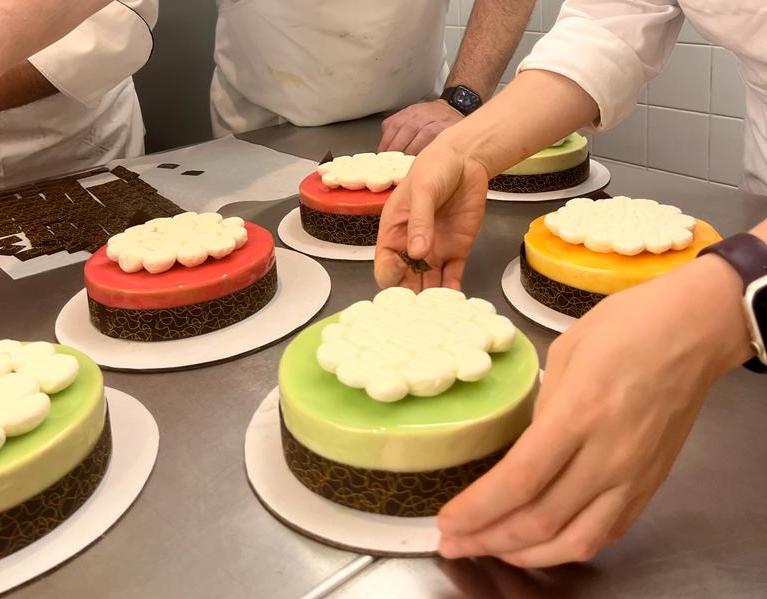Going to baking school was always a dream of mine, and I decided to go while working. I was in my early 30s and had an established career. But I also wanted to add new skills and credentials.
According to one chef-instructor, only 1 in 10 students will actually end up working in the culinary industry. But to me, it’s also valuable to learn what you don’t want to do.
Spoiler alert: I’m not currently working in culinary. It wasn’t feasible to start my career over–at least not now. (One big reason is health insurance.)
Still, I don’t regret going to school, but I do wish I had known a few things before deciding to register.
Know more about the culinary industry.
- Baking school is focused on building skills for those wanting to enter the traditional culinary industry kitchen.
- Many professional kitchens may offer training (paid or unpaid) and going to pastry school isn’t required to be hired.
- When starting to work in it, you will most likely make minimum wage without health insurance. Very few people get rich and famous. (My chef-instructor said that if we were in school for the money, we should get out, while pointing to the door. Yes, he was a little dramatic.)
- Working hours and stress levels depend on the establishment. Some may need overnight bakers; others may require working during meal hours.
Know what school can offer.
- Help with baking skills with immediate feedback from chef-instructors.
- Experience in a commercial-lite kitchen, where everything is bigger and you have to remember to say “behind.” You will also learn how physical it is to work in a kitchen.
- Networking opportunities with alumni, chef-instructors, and classmates.
- Experience with expensive machines, such as ice cream makers.
- Experience with different types of baked goods and confections.
Know what you won’t learn in school.
- You will not become a master chef because school won’t offer enough time on any specific subject.
- There may be viral baked goods, but the recipes practiced may be classic or even antiquated. Creativity is up to you.
Know what is required of you.
- You will need time outside of school to practice.
- In addition to tuition and fees, you will need money for equipment and ingredients to practice at home. (I estimate about $5K.)
- You will need money to try bakeries in your area, too. It’s important to learn about the market and what is selling.
Know what you might be giving up.
- Time, energy, and what you could be doing instead: Before I entered school, I made YouTube videos and posted on social media. During, I had to focus on school.
- Money (see above)
- Health: You will be tempted to eat everything you bake. (Find loved ones to share things with.) It can also get stressful in the kitchen, and you may burn, cut, and/or sprain yourself.
Know what you want to do after — at least a little.
- TV baking competitions: You will no longer be considered an amateur baker and will not qualify for most. (I learned this the hard way when a casting person reached out through Instagram.)
- Baking for fun: If you just want to learn how to bake, there are many online courses and YouTube videos, instead, as long as you have the right equipment at home.
- Content creation: You may need writing/editing skills that school won’t teach. (You also might not need school either.)
- Working in a professional kitchen: Make sure you save enough money and have access to health insurance (see above). (You also might not need school either.)
- Starting your own business: My chef-instructor always said to work in a kitchen first so you learn from spending other people’s money.
Other things to know:
- You will be spending a lot of time washing dishes.
- It is a lot of fun if you have good classmates who can turn into lifelong friends. Lots of memorable moments and laughter.
- Some classmates do go into the culinary field and love their jobs. Two of mine successfully switched industries and are happy that they took the leap.

